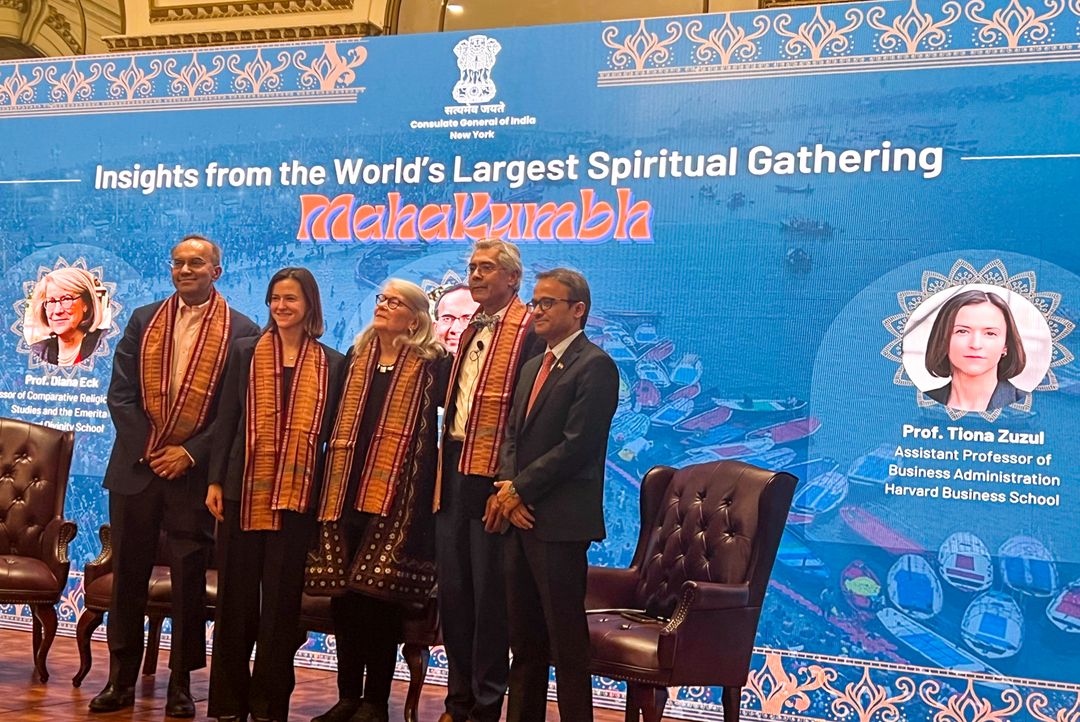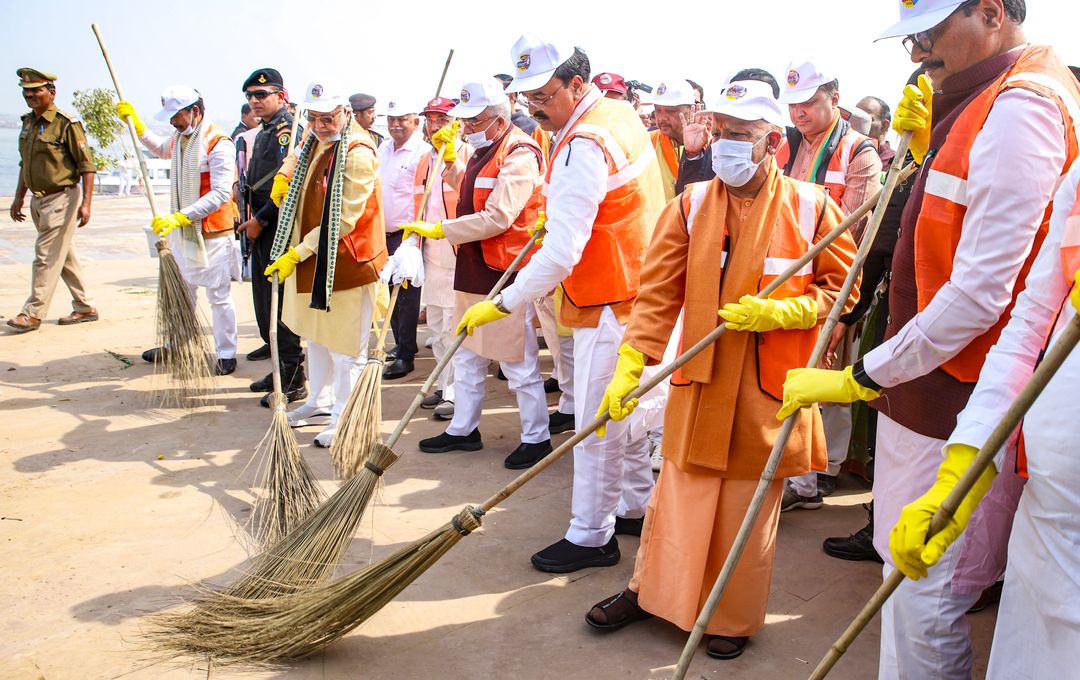
Mahakumbh Nagar, Feb 27 – The recently concluded Maha Kumbh Mela 2025 was not just a spiritual spectacle but also a thriving marketplace, offering economic opportunities to gig workers and small vendors. The 45-day religious congregation, which saw an unprecedented gathering of over 66 crore devotees, became a hub for enterprising individuals who catered to the needs of the pilgrims in Mahakumbh Nagar, a sprawling makeshift city set up for the event.
As millions of devotees flocked to the sacred Triveni Sangam in search of spiritual liberation, the streets and ghats of the festival site turned into bustling commercial zones. Vendors lined the bylanes, selling everything associated with faith—puja essentials, idols, ritualistic threads, vermilion, and religious literature. Beyond religious paraphernalia, the market expanded to include oxidised jewellery, bangles, grocery items, cow dung cakes, firewood, utensils, clothing, blankets, tea stalls, and fast food kiosks, keeping the 4,000-hectare temporary township alive 24/7.
A Marketplace of Opportunities
For many, the Maha Kumbh became a golden opportunity to earn a livelihood. Virendra Bind, a soft toy seller from Sahaswan, shared how the influx of families with young children boosted his sales. "I price my toys at Rs 60, but sometimes, if a customer agrees to Rs 70, I make an extra Rs 10 per sale," Bind explained.Rampal Kewat, a boatman’s son from Bulandshahr, found a new profession during the fair, switching from rowing boats to capturing memories as a freelance photographer. Equipped with a camera and an instant battery-operated printer, Kewat earned between Rs 5,000 and Rs 6,000 daily by charging Rs 50 per photo. "I transfer all my earnings to my family through my mobile phone at the end of each day," he said, reflecting on the convenience of digital transactions.
Abhishek, a 20-year-old from Pratapgarh, capitalized on the demand for ceremonial threads. Typically working as a driver, he switched professions for the event, selling red, black, saffron, and yellow threads at Rs 10 each. "I source them from Banaras at Rs 3 per piece, making a neat profit of Rs 7 per sale," he shared.
Prayagraj resident Manshu also seized the economic opportunity by running a fast-food stall near Sector 19, offering tea for Rs 10 and Maggi noodles for Rs 50, which remained in high demand throughout the day. He further maximized his earnings by offering bike taxi services within the Kumbh Mela premises. "Depending on the distance, I charge between Rs 50 and Rs 200. As a local, I know all the routes and shortcuts," he added.
Spirituality Meets Commerce
The Maha Kumbh Mela 2025, held after a 12-year cycle, proved to be a monumental event, drawing the highest-ever footfall in its history. As devotees sought spiritual enlightenment, gig workers and small vendors found economic sustenance, making the grand religious gathering not just a pilgrimage but also a thriving ecosystem of faith and commerce.With the Maha Kumbh concluding on February 26, its impact continues to resonate—both in the hearts of the faithful and in the pockets of those who turned the spiritual festivity into a flourishing business opportunity.

